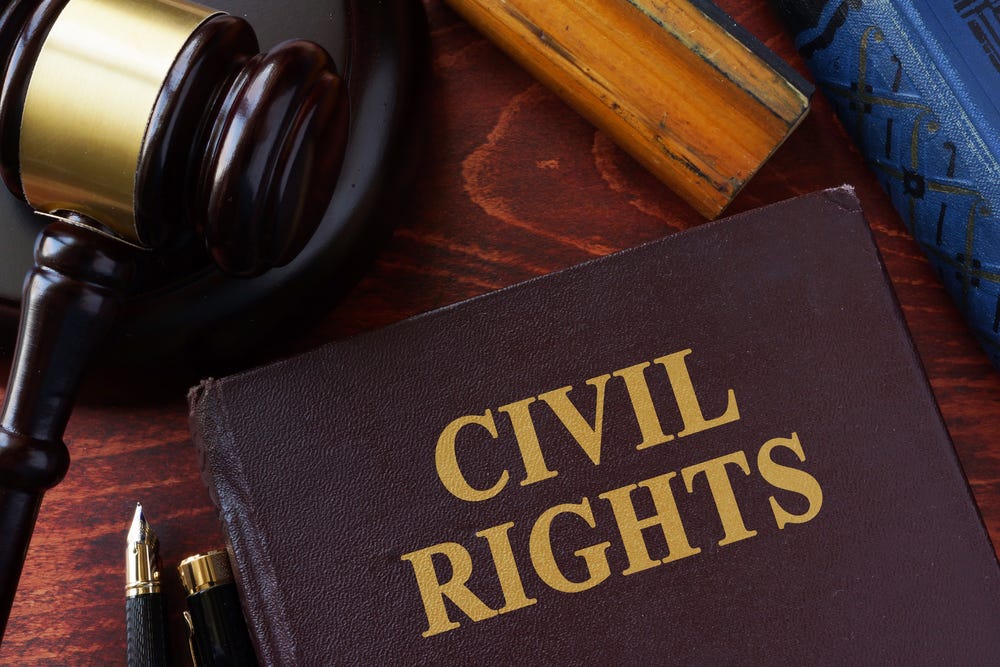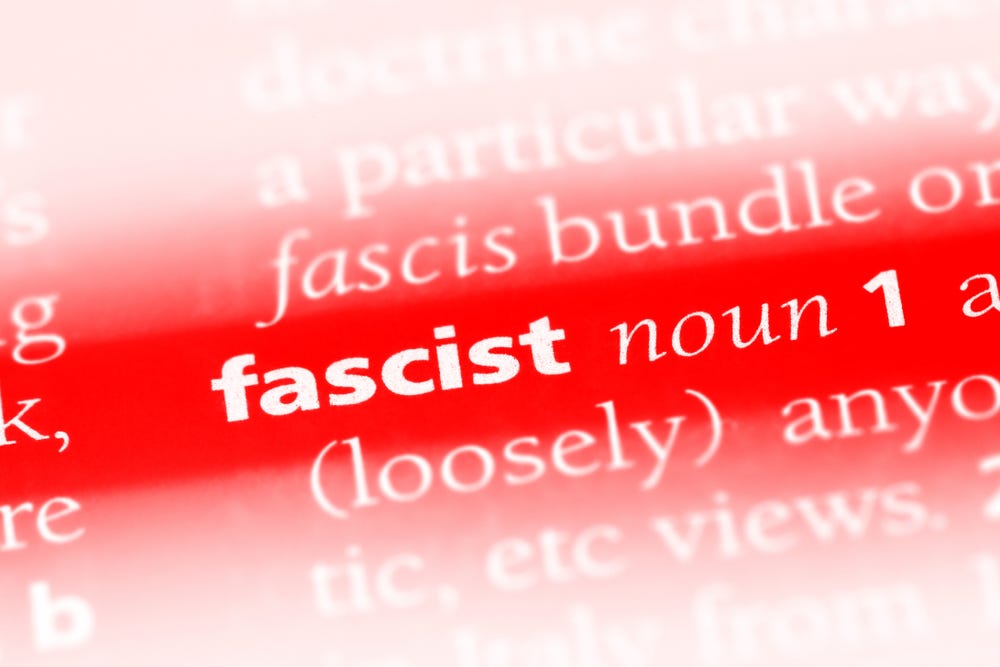E-Pluribus | February 23, 2022
Civil rights law can guide us out of the CRT wars, the downsides of calling everyone a fascist, and the backlash against gender ideology in schools.
A round up of the latest and best writing and musings on the rise of illiberalism in the public discourse:
David French: A Discrimination Complaint Against Stanford Shows a Path Past the CRT Wars
Among free speech advocates, one of the main issues with proposed “anti-CRT in schools” laws is that they are overly broad in way that could potentially restrict constitutionally protected speech. The other problem, as David French points out at The Dispatch, is that they are duplicative of existing laws aimed at protecting students and employees from discrimination and hostility in the classroom and the workplace. French looks at a recent case at Stanford University to illustrate how existing laws can be used to prevent the excesses of anti-racist trainings.
But what if we stop dealing with racial conflicts in schools, universities, and the workplace by reference to “CRT” but instead by reference to phrases that are more easily understood and well-defined in American law—phrases like “racial discrimination” or “racial harassment”? This formulation allows us to distinguish between offensive ideas (which the law protects) and discriminatory conduct (which the law prohibits.)
[ . . . ]
Title VII [of the Civil Rights Act] prohibits racial discrimination in employment, but students enjoy ample nondiscrimination protection as well. Title VI protects students from racial discrimination (including racial harassment), and Title IX protects students from sex discrimination (including sexual harassment). Both statutes apply to public and most private schools that receive federal funding.
Critically, each of these statutes protects citizens from discrimination while still broadly preserving the marketplace of ideas (though there are conflicts at the margins). They do not protect Americans from mere hurt feelings. They do not protect Americans from bad ideas. They are more precisely described as aimed far more at conduct than viewpoint—conduct that the “reasonable person” would find severe or pervasive.
Think of the distinction like this. It’s one thing to hear a colleague argue an opposing point of view about racial or religious controversy in good faith, even if you strongly disagree. It’s another thing entirely for an employee to regularly experience different and hostile treatment in the workplace because of their race or religion. Put a different way, silly PowerPoints are just silly. Racial segregation and workplace racial humiliation are unlawful.
Read it all.
Jesse Singal: The Downsides Of Calling Everyone You Disagree With A Fascist
It’s no secret that the public discourse on a myriad of culture war issues — from racial inequality to “CRT” in schools to LGBTQ+ rights to “wokeness” to vaccine mandates — has relied on extreme hyperbole and exaggerations of nuanced subjects. And both sides in these debates love ad hominem attacks. At his Substack, Jesse Singal explores the use of the word “fascist,” a label that has been thrown around much too liberally.
There are some obvious upsides to calling everyone who disagrees with you a fascist. One is that it’s a good way to gain attention, support, sympathy, and, in the case of activist groups, money. If your enemies are fascists, more people will feel social pressure to join the fight in one way or another, even if it’s just by angrily tweeting at the “fascists” in question.
[ . . . ]
More broadly, there’s the iron law of institutions and the left. For many people, it’s more important to improve their standing within their community than to achieve its external goals. Screaming a lot about fascists and white supremacists, and claiming to see them everywhere, is often taken as a mark of moral seriousness, maturity, and ideological commitment in progressive communities these days, especially online. The theory is that we live in particularly dangerous times, and the severity of our language has to meet the severity of the fight we’re immersed in.
I’d argue there are myriad downsides to this approach, though. One is that it really is an addiction — it feels good to call your opponents fascists, and doing so online brings mostly positive reinforcement (anyone who disagrees with you can be safely written off as a fascist or fascist-sympathizer) — and addictions can skew your view of the world. If you repeat something over and over and over, you’re going to start to believe it.
[ . . . ]
These strategies are also unlikely to have the desired impact on normies — on the everyday Brits and Americans who aren’t that online and who often come to these debates a bit later than journalists and academics, and often from very different starting points and through very different prisms. Media and academia, like most fields, have plenty of truly cowardly people who will nod along to stuff they don’t agree with just to stay out of trouble, or who will at least stay silent. Many of them have recently encountered the idea that it is “fascist,” or otherwise very bad to believe, for example, that biological sex is real and usually straightforward, or that there might be some settings in which it should trump gender identity, such as high school or college sports. So they keep their mouths shut and send me cathartic DMs or emails.
Normies, though? They’re in an entirely different universe, politically. Most people do not reside in social or political milieus in which these expanded fascism-boundaries hold sway, so when they encounter the idea that beliefs they hold are fascist, they’re not going to respond by saying “Oh no! I don’t want to be a fascist — I better rethink this.” Rather, they’ll think “What in the everloving name of Christ did I just read?” Often, I bet, they’ll seek another outlet or pundit — one that doesn’t call them fascist.
Read the full piece.
Andrew Sullivan: The Backlash Against Trans Extremism
In his latest Weekly Dish, and in the same vein as yesterday’s item from Suzy Weiss, Andrew Sullivan examines how parents who speak out with concerns over CRT, teachers promoting gender ideology, or trans female athletes competing with girls in public schools are ridiculed. And it’s this frustration that’s driving the often unproductive backlash from policymakers to address these concerns.
If parents object to the new ideology, they’re mocked, ignored or treated as bigots until the rage explodes in school board meetings, as it has all over the country. Below is a father in North Carolina, passionately defending his daughter from being fed CRT or being forced to compete with boys in sports. Take a moment and listen to him:
He is not a white supremacist, for Pete’s sake. He’s a parent. And he’s not having it. What he is expressing is what many Asian-American voters just expressed in San Francisco, with real fervor, and in a massive landslide. Public schools must not be engines of indoctrination. The Democrats’ refusal to take on their left-extreme — in fact, Biden’s complete capitulation to all of it — is creating a tsunami of opposition. Rightly so.
And this is the underlying force behind a plethora of truly awful bills and laws proliferating in state legislatures, which, in an attempt to prevent this kind of excess, could do a hell of a lot of harm. This is the moment many of us feared: when extremist trans ideology backfires, and takes gay men and lesbians down with it.
The Florida “Don’t Say Gay” bill, for example, bars any class discussion of homosexuality or transgender identity in the primary grades, and after then, only in an “age-appropriate” fashion. And “age-appropriate” is never defined. The law then hands the enforcement mechanism to parents who can sue if they think their kids are learning something not “age-appropriate.” The bill’s sponsor, Joe Harding, tried to reassure critics that the legislation would only seek to prevent “situations where a teacher is encouraging or initiating conversations through a procedure the school is doing,” rather than a blanket ban on spontaneous discussion from kids, but that’s not in the bill.
The vagueness is the point. It seems designed to terrify teachers, and chill any discussion of gay or trans subjects at all, at any age, in public school.
Read it all.
Around Twitter
Tomorrow is Student Press Freedom Day, so staffers at the Foundation for Individual Rights of Education are sharing their experience as student journalists:
Via Chris Rufo, a Minneapolis middle school gives advice for certain types of protests:
Noah Rothman on the Pro-Putin Right:













